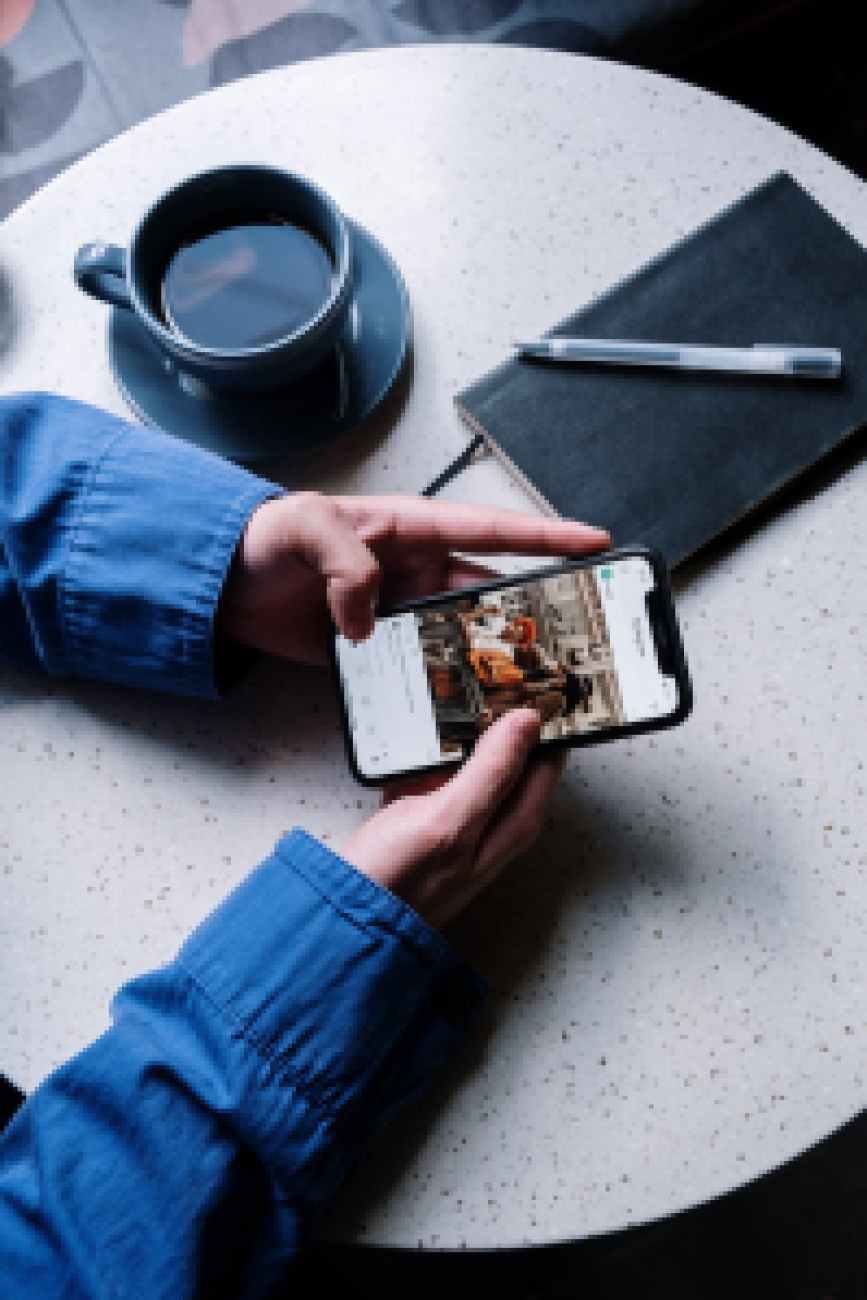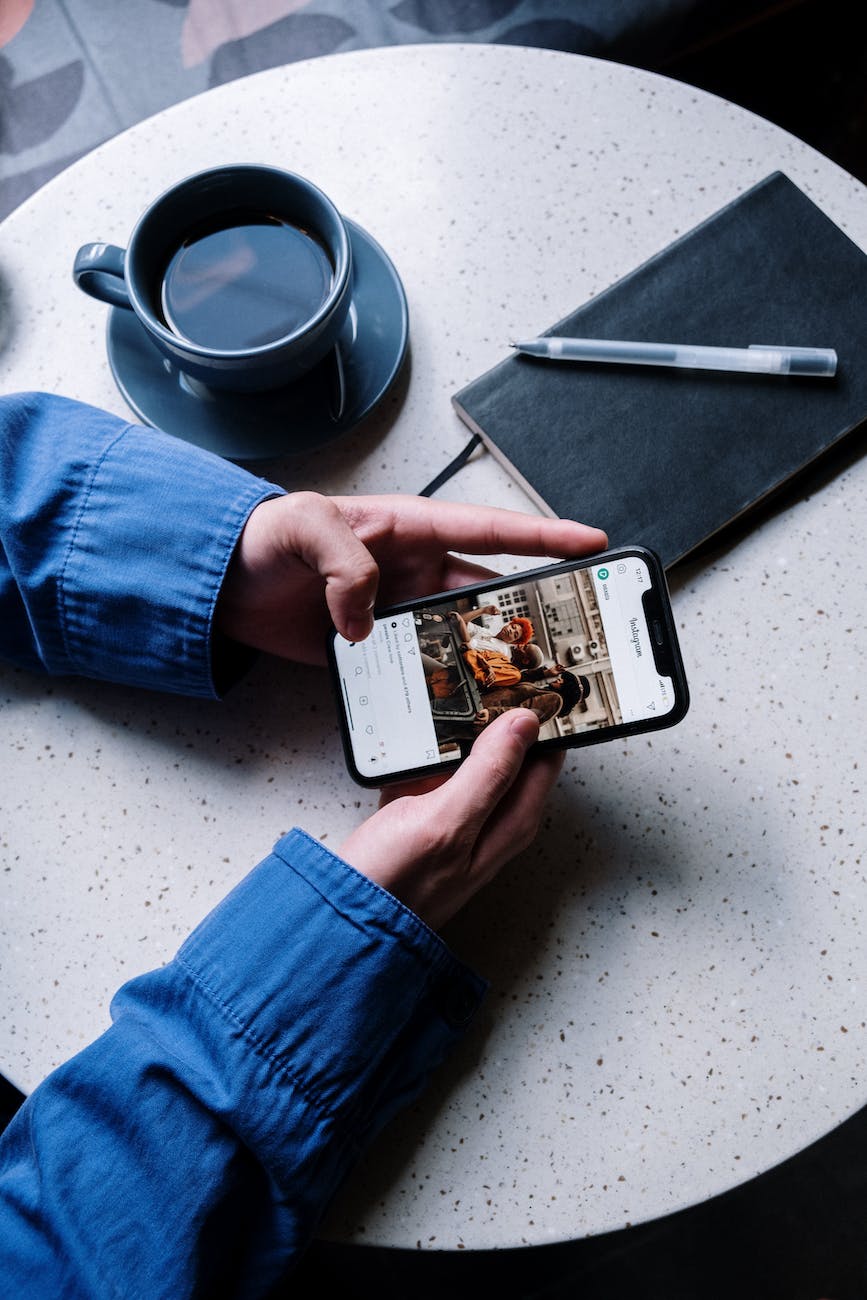It’s that time of year again. Christmas is over and we’re being bomabarded with diet and fitness ads, “New Year, New You” slogans, and promises of increased health and happiness. So to counteract all that, here’s some suggestions for New Year resolutions which will actively support your mental health and aid your recovery. How do I know? I’ve done them all. Take a look and choose whichever one speaks to you to try in 2023.

1/ Detox your Social Media feed
Social Media can support your mental health, it just depends how you use it. Unfollow everyone who makes you feel bad about yourself: no more fitspo, what I eat in a day or heavily photoshopped images. Replace them with accounts which make you smile, challenge diet culture and disordered eating, and expand your world.
2/ Start journalling
There’s no right or wrong way to journal. It can take any format you like: buy a pretty book with inspirational quotes, record voice notes, make mood boards, doodle or paint, try stream of consciousness writing, post on social media, start a blog, or write a good old fashioned diary. It’s a great way to release emotions, a form of mindfulness and creativity, and an excellent way to challenge the perfectionism that goes hand in hand with the eating disorder mindset.
3/ Smash those scales
I’ve been there, and I know that constant weighing only ever made me feel worse about myself. Even when I was losing weight, getting on those scales was just reinforcing my belief that a number, my size, was the most important thing about me. So when the numbers increased, I felt truly awful about myself.
If getting rid of the scales entirely seems too much, try cutting down to weighing once a week, the recommended amount in BED recovery, as a starting point.
4/ Be more mindful
I was rarely present when my eating disorder was in control. Letting things just be, with curiosity, was the opposite of that mentality of needing to control, atone for a past binge, or plan the next one. The brain power needed for those constant thoughts about food left so little space for being in the moment.
And that’s precisely why mindfulness can be so helpful. Short, structured exercises to help you get used to being present, noticing thoughts and feelings, can be a fantastic resource as recovery progresses. Mindfulness apps and courses are a great way to get started and learn different techniques.
5/ Be kinder to yourself
All that criticism you pile on yourself every day. All the shame and guilt. How’s that working for you? I’ll tell you what it did for me: it just made me feel worse and worse about myself, and fuelled increasing binges, further restriction, and more frequent purging.
How would you talk to a friend going through your situation? Why not try treating yourself with that same compassion? Hey, I get it. I didn’t feel worthy of it either to begin with. But the more compassion you show, the worthier the recipient feels, whether that’s your friend or yourself.
6/ Challenge your inner fatphobia
We’ve all been brought up to believe fat is bad and thin is good, and that belief can be a real barrier to recovery. As a starting point. try following a variety of fat creators on social media to help get used to seeing a range of different bodies. Then start reading about the history of the BMI and the diet industry. Be prepared: this one will probably bring up difficult emotions.
7/ Learn a new skill

Have you always wanted to speak a foreign language? Learn to paint? Bake? Why not finally give it a go? Whether you enrol at your local community college or join an online forum, learning something new is one of the Five Ways to Wellbeing for a reason. It challenges the brain, increases self esteem, and can be a way of connecting with others. It’s also another way to challenge those perfectionist tendencies, because no-one is perfect at something they’re doing for the first time, but that doesn’t mean that trying can’t be fun.
8/ Give to others
Another of the Five Ways to Wellbeing, volunteering, giving or helping others in some way has been shown to be really beneficial for good mental health. It can be as simple as taking the time to pay someone a (non-appearance related) compliment or as involved as giving up a few hours a week to help a local charity. Either way, giving to others takes focus off yourself and your worries for a while, helps you connect with others, and just somehow feels good.
Thank you for reading and Happy New Year! Which resolution appeals to you most?
